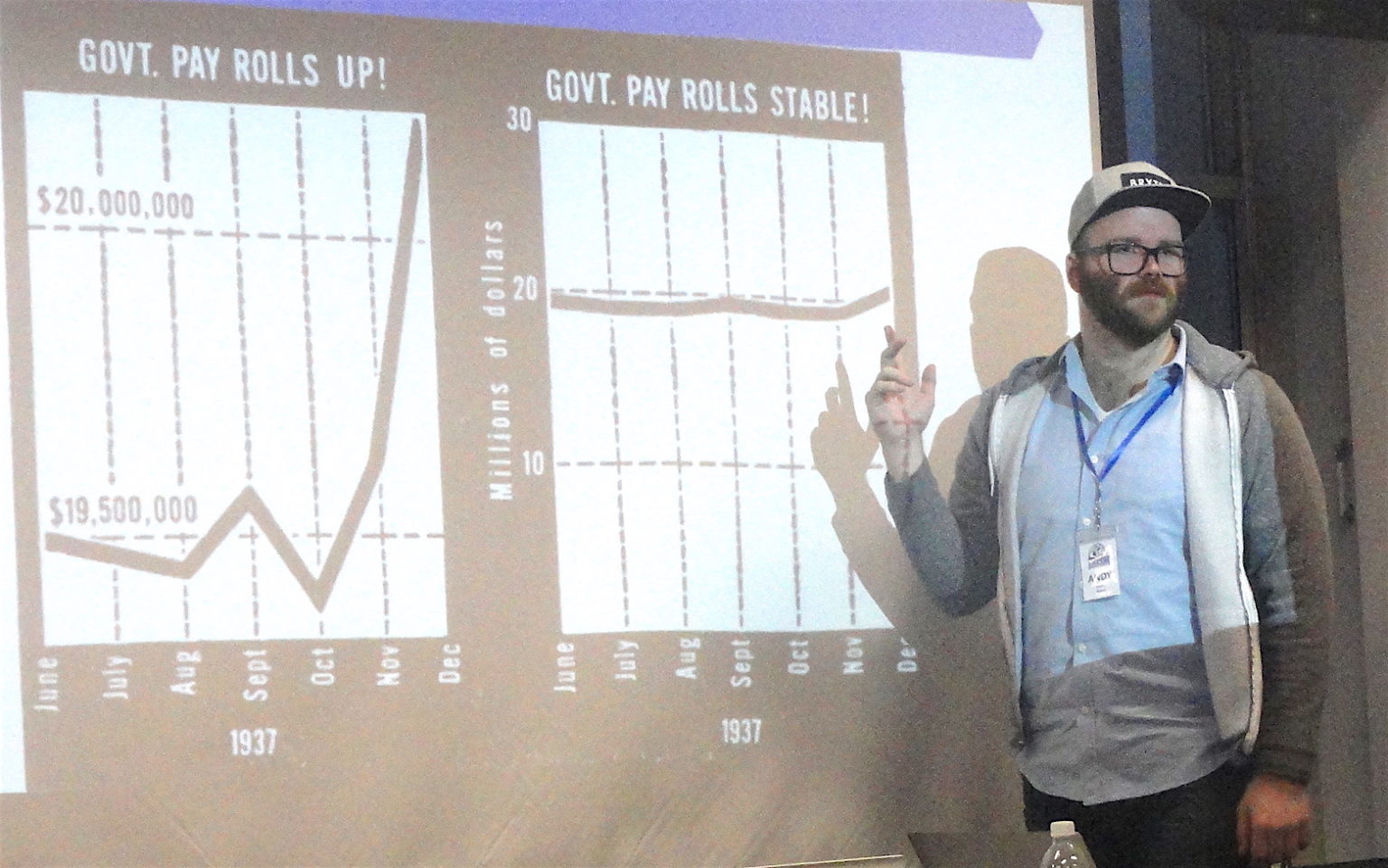'Always be requesting:' Fighting for public data as a constant process
It’s not enough for journalists just to seek public information from government and public agencies for a specific story or

It’s not enough for journalists just to seek public information from government and public agencies for a specific story or reason. It’s a full-fledged obligation that requires persistence and a good bit of diplomacy.
That’s the message Andy Boyle, director of platform architecture at Axios, had for attendees of the 2017 LION Summit, the country's largest gathering of local independent online news publishers, on Oct. 28.
A journalist, data specialist and web developer previously at NBC News, The Chicago Tribune, the St. Petersburg Times, the Boston Globe and other organizations, Boyle said journalists should file open records requests on a regular basis.
“Always be requesting” is how he summed up his philosophy of a constant and vigilant approach to obtaining public information that is available in more and more forms but isn’t always easy to access.
“Everything is data,” Boyle said, adding that “if you’re always asking for stuff,” journalists will always have something they can be working on.
Not only that, he said, but it can help in dealings with custodians of public documents and data. Journalists should learn the data retention policies of the agencies they deal with, and cultivate relationships with those officials.
Boyle was just as adamant that journalists refuse to fall for excuses why public data shouldn’t be released. Journalists should be firm but polite, reminding custodians of their obligation to produce information in a timely fashion (depending on state and local open records laws).
“Assume it’s public and free,” Boyle said. “It’s the public’s information and you’re from the public. Do not be a jerk. A lot of times people want to help you but they want to get an official request.”
Boyle said it’s a good idea to let a public agency know in advance before making a formal, written request.
“Just ask,” he said. “Governments usually have to prove it’s not public” when hesitating to release data.
He suggested that journalists also keep detailed spreadsheets of their records requests and get electronic versions of every available record they can.
As for the data itself, Boyle outlined the growing ways in which it exists and is usually available electronically in some form: spreadsheets, e-mails, text messages, traffic tickets, public payrolls, crime, weather and restaurant inspections reports, pet registries, restaurant menus, even Tinder matches.
“Data can help you answer questions that regular reporting cannot,” Boyle said, but data also “can be flawed, because there are human biases built into it.
“Data can be manipulated. That’s why context is important.”
Good data, Boyle said, is essentially an extension of good reporting. Journalists have to work not only to obtain information that’s in the public interest, but to make proper sense of what they have before them.
“Data journalism is explaining what the data means,” he said.
Wendy Parker is publisher of East Cobb News in Georgia.
Sign up for the weekly newsletter
Join the LION mailing list to get our weekly roundup of opportunities and resources for news entrepreneurs. View our most recent issues.
Related Articles
BoiseDev’s winning secret to selling newsletter ads: Only local news, only local ads
The site earns 60 percent of its advertising revenue through its high-open-rate email projects, in partnership with local ad agencies.
AI adoption: How Lede AI helps small publishers quickly generate content readers love
Helping news organizations leverage artificial intelligence with a tool that puts their readers and staff first
Social is down, newsletters are up: How audiences are finding LIONs in 2024
Changes to social media and search prompt publishers to shift strategy.
